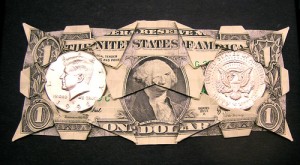 When paycheck protection is on the ballot, there are few things that could take away from its positive effects. The editors at National Review Online, however, believe they’ve found one:
When paycheck protection is on the ballot, there are few things that could take away from its positive effects. The editors at National Review Online, however, believe they’ve found one:
In an effort to make the measure appeal to a mostly left-leaning state, the law’s drafters made serious compromises — compromises that make Prop 32 a net negative for liberty. Specifically, the measure would ban all donations to local and state candidates from unions and corporations. This is an unacceptable limit on political participation, and we regretfully urge our Golden State readers to vote no when they head to the polls in November.
Dear Good, meet your enemy: Perfect. Paycheck protection has appeared on the California ballot twice before and failed on both occasions. While roughly 80 percent of union and nonunion households across the country favor paycheck protection, California unions have been successful in blocking the measure. Once again, they are gearing up for a fight. As we noted earlier, labor has put millions on the line. But in the 2010 election cycle, corporations spent $35 million on politics while unions spent nearly $13 million.
As of Sunday, labor had raised $75.1 million in opposition to Prop 32, while its proponents still lag behind with $60.5 million. The California Teachers Association leads the way with $21.1 million.
So it stands to reason that something in the equation will have to change in order for paycheck protection to become law in California. In this case, there must be some give and take between the left and the right in order for reform to happen. That’s why former Democratic lawmaker and state senate majority leader Gloria Romero helped to form a bipartisan coalition in favor of Prop 32.
Of course, NRO editors and others consider this a capitulation by paycheck protection proponents, elevating pragmatism over principles. And for those who are First Amendment-conscious, this proposition may be far from ideal.
But keep in mind that if Proposition 32 passes, it would put California’s campaign finance laws in line with the federal system. Even after the Supreme Court ruled on Citizens United v. Federal Elections Commission the no-holds-barred, Wild West-style campaign finance rules that both sides think exist, don’t.
Citizens United upheld several parts of the campaign finance limitations from McCain-Feingold and earlier legislation. One, regarding disclosure rules, was addressed by Justice Clarence Thomas. The other regarded an earlier case, Buckley v. Valeo, which was addressed in Justice Anthony Kennedy’s majority opinion. On the matter of direct contributions, Kennedy made it clear that there is government interest in preventing the actual instance of— or even the appearance of — quid pro quo corruption. Unions and corporations have been singled out as sources of that corruption since before Taft-Hartley. Citizens United merely allowed those groups to engage in politicking with funds from their treasuries to be used on independent expenditures. Neither group can directly give money to candidates because of the corruption concerns.
And even with that limitation, unions and corporations alike will still be able to exercise their rights to participate in the election. Montana failed in trying to block the effects of Citizens United through its own state legislation, so the limitations on California unions and corporations would likely be no greater than those at the federal level.
This might not be perfect, but it would still stop the problem of automatic payroll deduction. While there is a lot of talk of how the electorate has grown tired of campaign spending, few will point out that cutting back on money that is given without written consent is a good place to start.



